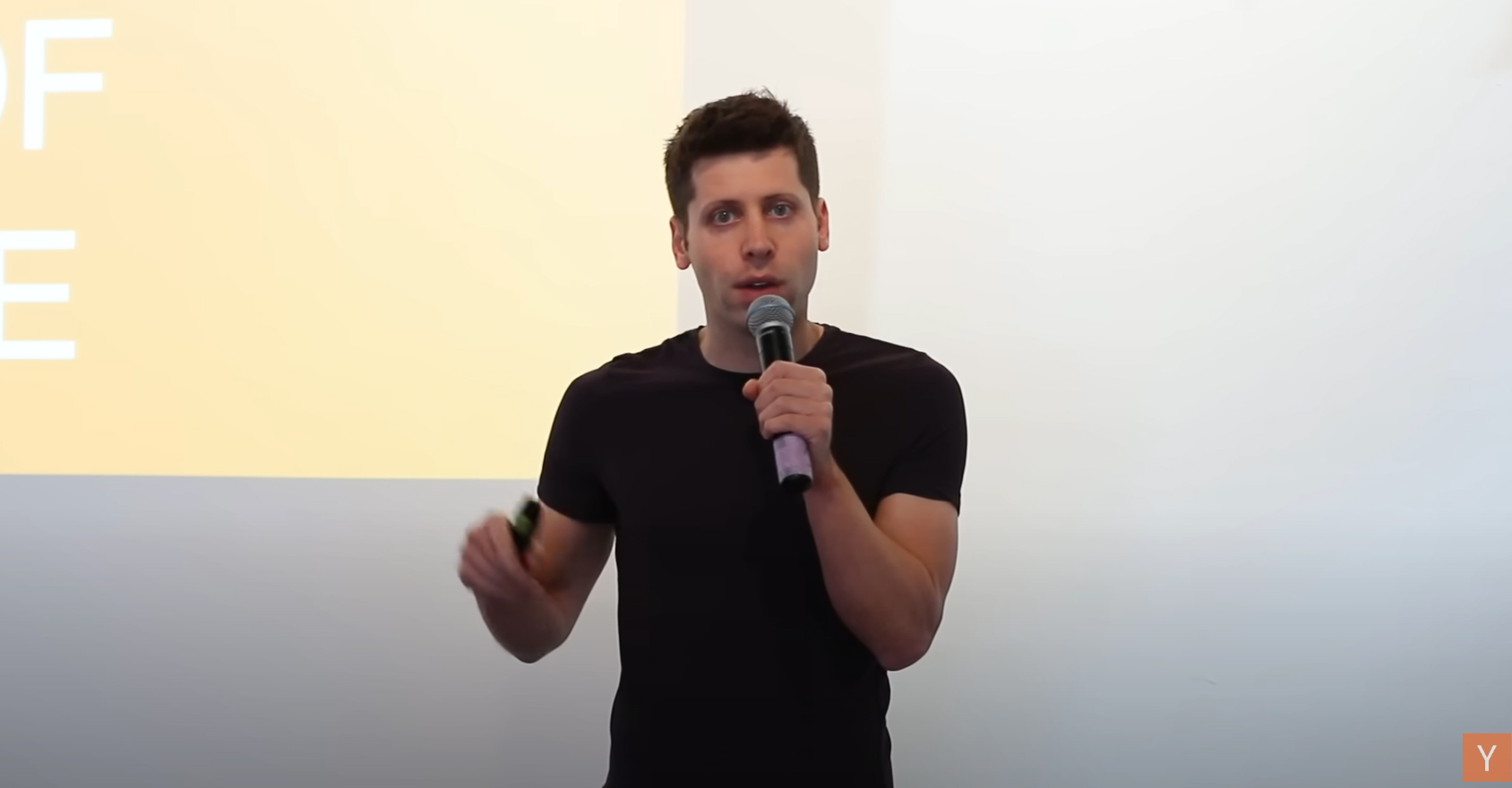25 Strategic Moves That Established Companies Need to Steal From Startups

GET THE #1 EMAIL FOR EXECUTIVES
Subscribe to get the weekly email newsletter loved by 1000+ executives. It's FREE!

We work a lot with established businesses. We recently wrote about how day one thinking is a critical component of Amazon's strategy.
Tactically though it can be hard to think like this as you get stuck into your day-to-day ways of thinking.
Not only that, it's hard sometimes to even imagine what day one thinking looks like.
I thought to help this, I would revisit Sam Altman's 25 lessons for startups. Sam is the CEO of OpenAI and was the president of Y Combinator. He's seen a lot of startups and has a lot of experience in the space.

The awesome thing about this video is that he gave it before ChatGPT became the big thing it is today. So it's a great example of how to think about the future.
Rule #1
Build a product so good people tell their friends
Build a product that people love so much, they naturally recommend it. This represents 80% of the work towards becoming a successful startup.
Rule #2
Easy to understand
If your product can be explained simply and understood quickly, you're on the right track. Otherwise, it may indicate unclear thinking or insufficient demand.
Rule #3
Exponential growth in the market
Look for markets undergoing or about to experience rapid growth. Early-stage startups thrive by riding the wave of emerging markets.
Rule #4
Real trends vs. Fake trends
Real trends are platforms early adopters obsess over and share. Fake trends, like VR in 2018, are hyped but lack intense user engagement.
Rule #5
Evangelical founder
Every startup needs a passionate founder who can inspire the team, sell the vision, and attract investment. This person is often the CEO.
Rule #6
Ambitious vision
Start with a modest goal, but let your vision expand organically. Ambitious projects are more likely to attract top talent and maintain excitement.
Rule #7
Hard startup vs. Easy startup
It's easier to start an ambitious startup than a modest one. Big ideas attract attention, talent, and capital more easily than smaller ones.
Rule #8
Confident and definite view of the future (but flexible!)
Have a confident and clear vision of the future, but be flexible enough to adapt. Confidence attracts investors and inspires teams.
Rule #9
Huge if it works
Pursue ideas that, if successful, are huge. This will attract the best people and give your startup a better chance of succeeding.
Rule #10
Team (non-obvious insights)
Beyond intelligence and hard work, teams need optimism, creativity, and a problem-solving mindset to thrive in a startup environment.
Rule #11
Optimists
Startups face constant challenges, so having optimistic team members who believe in the mission is crucial to overcoming obstacles.
Rule #12
Idea generators
Have a few team members who consistently generate new ideas. Not every idea will succeed, but this creativity fuels innovation.
Rule #13
‘We’ll figure it out’
Successful startups have a 'we'll figure it out' mindset. Even in the face of challenges, teams should believe they can solve any problem.
Rule #14
‘I’ve got it’
Team members should take ownership and responsibility when issues arise. A strong team steps up and says, 'I'll handle it.'
Rule #15
Action bias
In startups, quick action is essential. Teams need to move fast with limited data, and be willing to adapt quickly when things don’t work.
Rule #16
The blessing of inexperience
Inexperience can be an advantage, as it allows startups to try things established companies wouldn’t dare. Boldness often comes from not knowing what’s 'impossible.'
Rule #17
Momentum
Never lose momentum in a startup. Momentum keeps the team motivated and productive, and losing it can make recovery very difficult.
Rule #18
Competitive advantage
Every successful startup needs a competitive advantage that builds over time, such as a network effect or a proprietary technology.
Rule #19
Sensible business model
You don’t need a fully defined business model at the start, but you should have a clear plan for how you’ll eventually make money.
Rule #20
Distribution strategy
A clear plan for acquiring users is essential. If founders can’t explain how they’ll grow, it’s a major red flag for investors.
Rule #21
Traits of the best founders - Frugality, focus, obsession, love
The best founders are frugal, focused, obsessed with their mission, and genuinely love what they’re building.
Rule #22
Why startups win
Startups can outcompete large companies by being faster, more agile, and taking bold risks that bigger organizations avoid.
Rule #23
One no vs. One yes
Startups need only one 'yes' from an investor or customer to succeed, while larger companies often require approval from many layers of management.
Rule #24
Fast-changing markets
In rapidly evolving markets, startups can make quicker decisions and adapt faster than larger, slower-moving companies.
Rule #25
Platform shifts
Startups often win by capitalizing on major platform shifts, such as the advent of mobile apps. Large companies are slower to pivot, giving startups an advantage.
If you enjoyed this, then I would also recommend checking out this talk we covered of his at Waterloo.
















